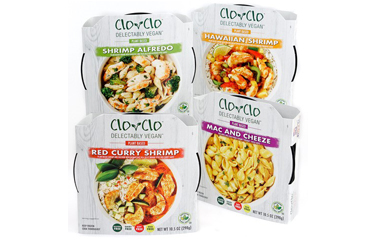The seafood analogs sector is getting busier, with increased investments, new product offerings, and expanded distribution.
Investment in plant-based seafood analogs reached USD 70 million (EUR 59 million) in the first half of 2021, according to the Good Food Institute, while U.S. sales of plant-based seafood analogs grew 23 percent to USD 12 million (EUR 10 million) last year.
Santiago, Chile-based NotCo recently raised USD 235 million (EUR 200 million) in funding to help it add new products in the U.S. market and elsewhere and establish markets in Mexico and Canada. It also plans to expand to Europe and Asia within the next year, per TechCrunch. While the company currently focuses on plant-based alternatives to cow’s milk and beef, it plans to add plant-based seafood and white meat analogs, a company executive told TechCrunch.
Edina, Minnesota, U.S.A.-based CLO-CLO Vegan is rolling out plant-based shrimp entrée bowls and a Mac and Cheeze Bowl.
“More than ever, today’s consumers are looking for plant-based seafood solutions that are packed with flavor and convenient, while being more conscious about the food they eat and products they buy,” CLO-CLO Vegan Foods Vice President Wendy Hinnenkamp said in a press release. “CLO-CLO is meeting this demand by offering new plant-based entrees that appeal to vegans by satisfying cravings of traditional seafood and texture, but also provides plant-based nutrition and goodness in an easy, ready-to-heat format.”
The three frozen plant-based shrimp analog bowls are made with konjac root, “which gives the shrimp the texture, look, and taste of traditional shrimp,” CLO-CLO said. The bowls are available at Sprouts Farmers Market stores. Flavors include: Hawaiian-Inspired Shrimp Bowl, which includes plant-based shrimp analog, red and green pepper, basmati rice, and a teriyaki pineapple sauce; Red Curry Shrimp Bowl, which features plant-based shrimp analog, zucchini with basmati rice in an Indian-style curry sauce; and Shrimp Alfredo Bowl, which includes plant-based shrimp analog, broccoli and gluten-free pasta in an alfredo-style sauce.
Separately, Victoria, British Columbia, Canada-based Save da Sea is selling plant-based smoked salmon that is made from carrots. It is available in 75 retailers around Western Canada, along with several restaurants, according to the Times Colonist.
“The reaction has been incredible, and I won’t lie, our timing has been really good,” Save da Sea Founder Aki Kaltenbach said.
With fast food outlets like Burger King and A&W offering plant-based burgers and many grocers now stocking more plant-based products, the alternative protein movement has gone mainstream, Kaltenbach said.
“It’s more well-known now and there’s so much activity around plant-based meats. It seems another company pops up every other day,” she said. “They see the opportunity.”
Gathered Foods’ Good Catch brand is also taking advantage of its products’ growing popularity, signing a distribution deal with Dot Foods, North America's largest food redistributor, which will allow Good Catch’s products to be available to a “broader set of foodservice accounts and businesses in more locations,” the company said in a press release.
Mount Sterling, Illinois-based Dot Foods has 12 distribution centers serving all 50 U.S. states.
“Dot’s extensive network will make Good Catch plant-based seafood accessible to everyone from high-volume establishments and regional chains to smaller mom-and-pop businesses,” the company said.
Last month, Gathered Foods landed a contract to test two of its plant-based seafood analog products in Long John Silver’s restaurants. LJS Chief Marketing Officer Stephanie Mattingly told SeafoodSource Gathered Foods’ Plant-Based Breaded Fish-Free Fillet and Plant-Based Breaded Crab-Free Cake will be offered to customers at five of its restaurants in California and Georgia.
“The plant-based seafood market is projected to grow USD 1.3 billion [EUR 1.1 billion] over the next decade, and we anticipate that it will be the next big wave, after seeing the initial success of plant-based burgers and chicken,” Mattingly said.
Photo courtesy of CLO-CLO Vegan Foods







